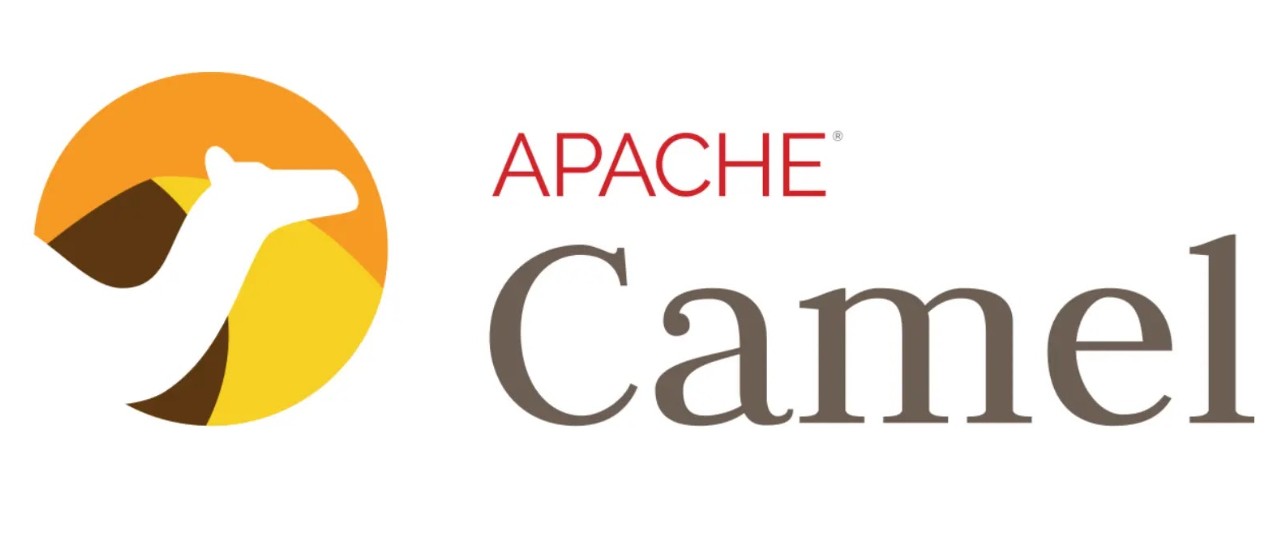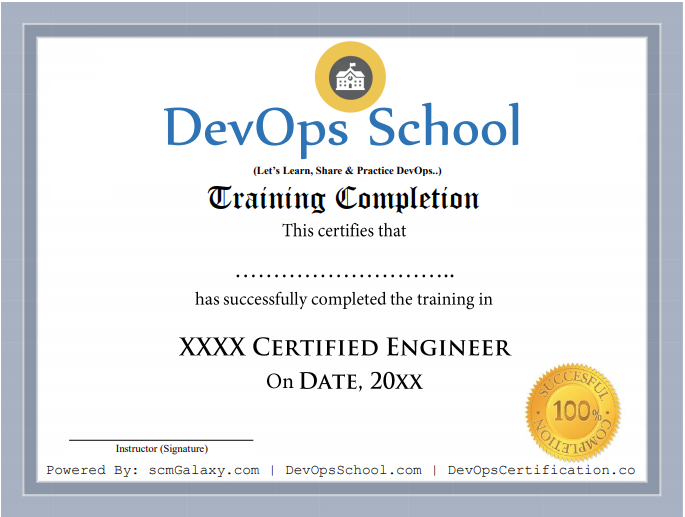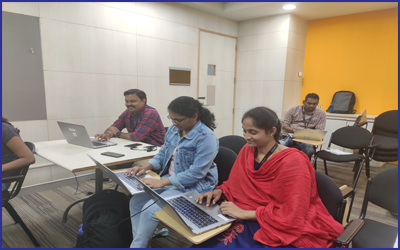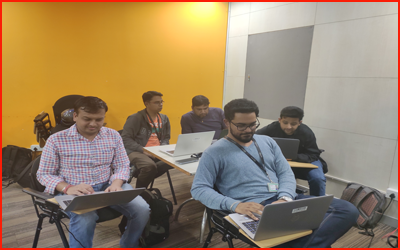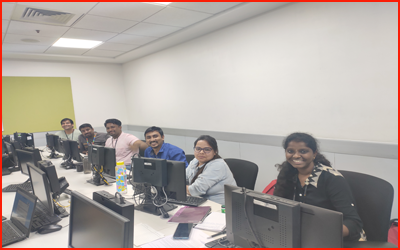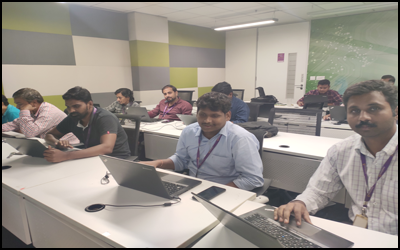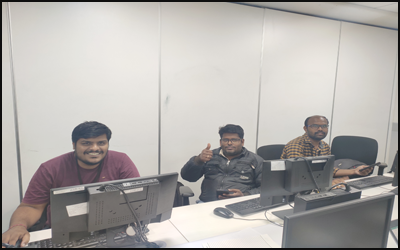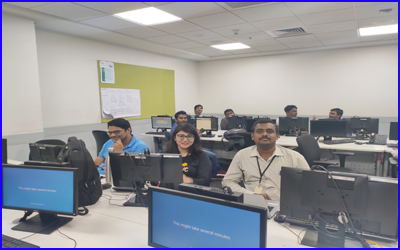8000+
Certified Learners
15+
Years Avg. faculty experience
40+
Happy Clients
4.5/5.0
Average class rating
What is Apache Camel?
Apache Camel is an open-source integration framework that provides a comprehensive solution for routing and transforming data across multiple systems and technologies. It is based on the principles of Enterprise Integration Patterns (EIP), a set of design patterns used in system integration that facilitate communication between disparate applications. Camel enables seamless connectivity between systems, applications, and data formats, making it a vital tool for enterprises that need to integrate various technologies such as databases, messaging systems, file systems, and web services.
Apache Camel provides a unified Java-based framework, offering both declarative and programmatic approaches for system integration. It supports a wide array of protocols, including HTTP, JMS, FTP, and more, along with data formats like XML, JSON, CSV, and even custom formats. The ease of routing data, along with the ability to apply transformations and perform complex error handling, makes Apache Camel a powerful solution for building scalable, flexible, and efficient integration solutions.
Why Apache Camel Training is Important?
In today’s rapidly evolving enterprise IT landscape, businesses face the constant challenge of integrating multiple systems, applications, and data sources. Apache Camel offers a standardized approach to building integration solutions, but understanding how to utilize its full potential requires specialized knowledge. Apache Camel training is crucial for developers, architects, and integration specialists to effectively use this framework to solve real-world integration challenges.
1. Understanding Integration Needs:
Without proper training, integrating systems using Apache Camel may become complex and error-prone.
Training helps
learners grasp how to apply integration patterns to streamline communication between different systems and
data
formats, ensuring consistency and reliability.
2. Maximizing Efficiency:
Apache Camel provides extensive functionality, but its real power lies in the ability to tailor solutions
for
specific use cases. Training ensures that users can leverage Camel’s components and features efficiently,
avoiding
unnecessary complexity while enhancing performance.
3. Boosting Career Growth:
As more organizations adopt Apache Camel for enterprise integration, there is a growing demand for
professionals
skilled in using this framework. By undergoing training, individuals enhance their expertise and career
prospects
in a rapidly growing field.
4. Reducing Integration Failures:
With proper training, developers can handle common integration issues, including data mismatches, failed
communications, and service failures, significantly reducing system downtimes and increasing reliability.
Course Feature
An Apache Camel training course is designed to provide hands-on experience with the framework, equipping learners with practical skills to implement integration solutions effectively. Here are the key features of a comprehensive Apache Camel training course:
1. Hands-on Labs:
Practical exercises are integrated into the training to give learners a real-world experience of
developing
integration solutions. These labs will focus on creating routes, managing transformations, and
implementing
various integration patterns.
2. Real-life Use Cases:
Courses often include case studies and examples based on real-world scenarios, showing how Apache Camel
can be
used in enterprise environments to solve common integration challenges.
3. Expert Instructors:
Trained and experienced instructors guide learners through the course, offering deep insights into the
practical
applications of Apache Camel and addressing specific queries.
4. Comprehensive Course Materials:
The course includes detailed materials such as slides, reading materials, and reference guides, which
learners can
refer to after the training. These resources help consolidate the learning experience and offer valuable
reference
points during implementation.
5. Focus on Best Practices:
The training emphasizes the best practices in designing, deploying, and maintaining Apache Camel routes,
ensuring
that learners not only understand how to use the framework but also how to do so in an optimal and
scalable way.
Training objectives
The primary goal of Apache Camel training is to empower individuals with the skills and knowledge needed to build scalable, flexible, and efficient integration solutions using the Camel framework. The specific training objectives are as follows:
1. Introduction to Apache Camel:
-
Understand the core concepts and architecture of Apache Camel.
-
Learn the key components, including routes, processors, and endpoints.
2. Mastering Integration Patterns:
-
Understand and apply various Enterprise Integration Patterns (EIP) within Apache Camel.
-
Learn to build routing solutions using patterns like content-based routing, message filtering, and data transformation.
3. Handling Errors and Exceptions:
-
Learn how to implement error handling strategies, including retry and circuit breaker patterns, to ensure system resilience and fault tolerance.
4. Working with Different Data Formats:
-
Understand how to work with various data formats such as XML, JSON, CSV, and custom formats.
-
Learn how to transform and convert data between formats seamlessly.
5. Integrating Apache Camel with Other Systems:
-
Explore how to integrate Camel with databases, messaging systems (JMS, Kafka), REST services, and web services.
-
Learn about Camel components and how they enable communication between different technologies.
6. Best Practices and Performance Optimization:
-
Learn performance optimization techniques for integrating large-scale systems using Camel.
-
Discover how to implement maintainable, scalable integration solutions.
Apache Camel Target Audience
Apache Camel is a versatile and powerful integration framework used to build scalable and maintainable integration solutions. As such, its target audience includes a diverse group of professionals who work with integration, development, and enterprise systems. Below is a breakdown of the key target audiences for Apache Camel training:
1. Integration Architects:
Professionals responsible for designing and implementing integration solutions in an enterprise
environment will
benefit from a deep understanding of Apache Camel’s capabilities.
2. Java Developers:
Since Apache Camel is built on Java, developers with Java expertise can gain significant value from
training in
Apache Camel, as it will enable them to design and implement robust integration solutions.
3. DevOps Engineers:
DevOps professionals tasked with automating integration tasks across different environments will learn how
to
leverage Apache Camel for consistent and reliable deployments.
4. System Integrators:
System integrators who work to ensure that various software systems communicate seamlessly will benefit
from
learning about Camel’s routing, transformation, and error-handling features.
5. IT Managers and Technical Leads:
Managers and leads looking to understand integration frameworks and tools at a high level will gain the
insights
needed to make strategic decisions about implementing Apache Camel in their organizations.
Apache Camel Training Methodology
The Apache Camel training methodology is designed to equip participants with both theoretical knowledge and practical, hands-on experience, ensuring they can effectively utilize the framework in real-world integration scenarios. The methodology focuses on delivering a structured, comprehensive learning experience with a blend of theoretical concepts, live demonstrations, practical exercises, and collaborative activities. Below is a detailed breakdown of the methodology used to teach Apache Camel:
1. Instructor-led Sessions:
Interactive classroom sessions led by industry experts provide a strong theoretical foundation for Apache
Camel,
followed by practical demonstrations of key concepts.
2. Live Coding:
Instructors demonstrate how to build Camel routes live, showcasing real-time problem-solving and answering
questions during the process.
3. Interactive Exercises:
Throughout the training, participants engage in practical exercises where they implement what they’ve
learned in
real-world scenarios, solidifying their understanding.
4. Quizzes and Assessments:
Frequent assessments and quizzes help gauge the learners' progress, allowing instructors to address
knowledge gaps
and ensure everyone is up to speed.
5. Group Discussions and Case Studies:
Group discussions and case studies help learners connect theoretical knowledge to real-world business
problems and
solutions, providing insights into how Apache Camel can be applied in various industries.
Apache Camel Training Materials
Apache Camel training materials are designed to support a comprehensive learning experience, ensuring participants can easily grasp key concepts and apply them to real-world integration challenges. These materials are structured to provide both theoretical knowledge and practical tools for implementing integration solutions using Apache Camel. Below is an overview of the key training materials used in an Apache Camel training program:
1. Course Slides:
Comprehensive slides covering all course topics, which serve as the foundation for the lessons and can
be
referenced later for further study.
2. Documentation:
Detailed documentation of Apache Camel components, EIPs, and configuration options, serving as an
essential guide
to reference when building integration solutions.
3. Code Samples:
Sample code that demonstrates how to implement common Camel features, such as routing, transformations,
and error
handling, providing a starting point for learners to build their own solutions.
4. Lab Guides:
Step-by-step lab guides to help learners through practical exercises, ensuring they understand the
implementation
process before working on independent projects.
5. Reference Materials:
In-depth articles, blog posts, and other resources that supplement the training, offering deeper
insights into
advanced Camel concepts and best practices.
Instructor-led, Live & Interactive Sessions
Duration |
Mode |
Level |
Batches |
Course Price at |
|---|---|---|---|---|
8 to 12 Hrs. (Approx) |
Online (Instructor-led) |
Advance |
Public batch |
24,999/- |
8 to 12 Hrs. (Approx) |
Videos (Self Learning) |
Advance |
Public batch |
4,999/- |
5 Days |
Corporate (Online/Classroom) |
Apache Camel Training and Course |
Corporate Batch |
Contact US |
Agenda: Apache Camel Enterprise Integration Training Download Curriculum
Training methodology
| SL | Method of Training and Assesement | % of Weightage |
|---|---|---|
| 1 | Understanding the problems | 5% |
| 2 | Concept Discussion | 10% |
| 3 | Demo | 25% |
| 4 | Lab & Exercise | 50% |
| 5 | Assessments & Projects | 10% |
OUR COURSE IN COMPARISON
| FEATURES | DEVOPSSCHOOL | OTHERS |
|---|---|---|
| Lifetime Technical Support | ||
| Lifetime LMS access | ||
| Interview Kit | ||
| Training Notes | ||
| Step by Step Web Based Tutorials | ||
| Training Slides |
- The career opportunities for skilled professionals are increasing significantly with huge scope for career growth.
- According to Indeed.com, the average salary of a Apache Camel professional is $177,530 per annum.
- Apache Camel being the leading data analytics tool is adopted by many MNCs worldwide. With this, the demand for Apache Camel professionals is gradually increasing - IDC.com
- IT Operations, IT Monitoring, IT Support, & Data Center teams.
- Business Analysts and Data Analysts who want to gain knowledge of Apache Camel development for creating Apps and Dashboards
- Understand Apache Camel concepts
- Apply various techniques to visualize data using multiple graphs and dashboards
- Implement Apache Camel in the organization to monitor operational intelligence
- Troubleshoot various application log issues using SPL (Search Processing Language)
- Implement indexers, forwarders, deployment servers and deployers in Apache Camel
- A basic understanding of JavaScript (beginner is fine)
- A basic understanding of Client Side vs Server Side (beginner is fine)
- Professionals seeking a transition to Cybersecurity domain from any background
- Cybersecurity professionals looking to enhance their skillsets
- Enthusiasts looking to enter the exciting world of Cybersecurity
APACHE CAMEL CERTIFICATION
What are the benefits of "Apache Camel" Certification?
Certifications always play a crucial role in any profession. You may find some Apache Camel professional's, who will tell you that certifications do not hold much value; This certification demonstrates an individual's ability to generate complex searches, reports, and dashboards with Apache Camel's core software to get the most out of their data.
A Apache Camel Core Certified User can search, use fields, use look-ups, and create basic statistical reports and dashboards in the Apache Camel Enterprise or Apache Camel Cloud Platforms. This certification demonstrates an individual’s ability to navigate and use the Apache Camel Software.
FREQUENTLY ASKED QUESTIONS
Provide a brief overview of Apache Camel and its role in business process automation and decision management.
Explain the target audience of the training courses, such as developers, process architects, business analysts, and administrators.
Clarify whether participants need any prior knowledge or skills before taking specific courses.
Describe whether the courses are offered as self-paced online courses, instructor-led workshops, or a combination of both.
Provide information on how participants can register for the courses, including links to registration pages or contact information.
List the key topics and concepts that will be covered in each course.
Explain whether the courses include interactive exercises and real-world examples to reinforce learning.
Mention whether participants will receive course materials, slides, access to platforms, and any other relevant resources.
Specify if the completion of a course leads to a certification, and provide details about the certification process.
Explain whether participants will have continued access to course materials and resources after completing the course.
Provide an estimated duration for each course to help participants plan their schedules.
Mention if there are options for group bookings or customized training programs for organizations.
Provide information on payment methods, pricing, and any available discounts.
Explain if participants will have access to technical support or assistance during the course.
Provide contact information or links to reach out for inquiries and questions about the training courses.
DEVOPS ONLINE TRAINING REVIEWS

Abhinav Gupta, Pune
(5.0)The training was very useful and interactive. Rajesh helped develop the confidence of all.

Indrayani, India
(5.0)Rajesh is very good trainer. Rajesh was able to resolve our queries and question effectively. We really liked the hands-on examples covered during this training program.

Ravi Daur , Noida
(5.0)Good training session about basic Devops concepts. Working session were also good, howeverproper query resolution was sometimes missed, maybe due to time constraint.

Sumit Kulkarni, Software Engineer
(5.0)Very well organized training, helped a lot to understand the DevOps concept and detailed related to various tools.Very helpful

Vinayakumar, Project Manager, Bangalore
(5.0)Thanks Rajesh, Training was good, Appreciate the knowledge you poses and displayed in the training.

Abhinav Gupta, Pune
(5.0)The training with DevOpsSchool was a good experience. Rajesh was very helping and clear with concepts. The only suggestion is to improve the course content.
